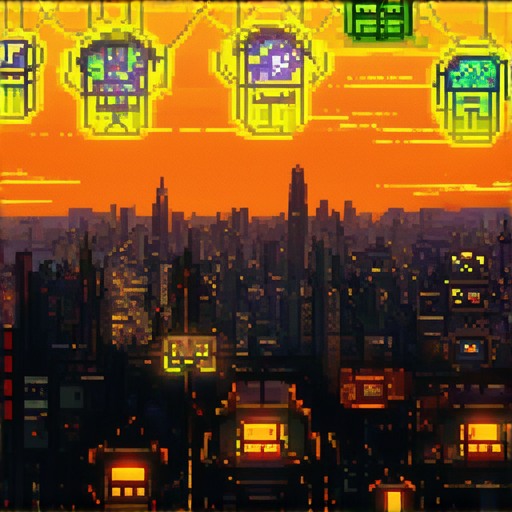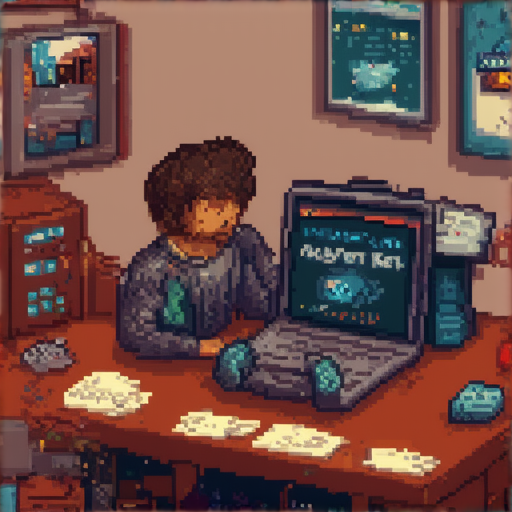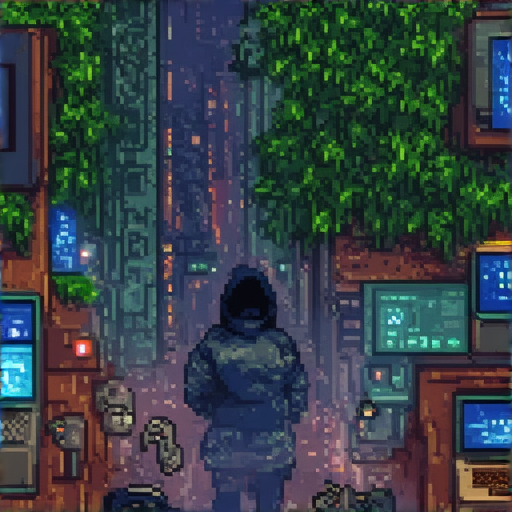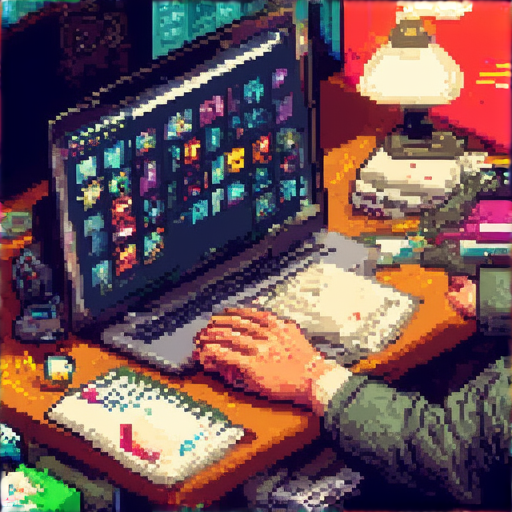As the world of independent game development continues to thrive, connecting with fellow developers and gamers has become increasingly crucial for success. With numerous platforms and communities available, navigating the best options can be overwhelming. For aspiring indie game creators, finding their place within these vibrant ecosystems is essential for growth, collaboration, and staying up-to-date with industry trends. From discovering hidden gems to promoting your own work, understanding the intricacies of indie game communities online is vital for taking your career to the next level.

The Best Social Media Platforms for Indie Games
- Discord: As mentioned earlier, Discord is a highly popular platform among gamers, making it an ideal choice for indie developers to connect with their audience.
- Twitch: Twitch is a live streaming platform primarily used for video games, offering a vast community of potential players and viewers interested in indie titles.
- Twitter: With its real-time updates and short-form messaging, Twitter is perfect for indie developers to share updates, behind-the-scenes content, and engage with their followers.
- Reddit: Subreddits dedicated to gaming and indie games provide a space for developers to share their work, receive feedback, and build a community around their projects.
- Facebook Groups: Creating a private Facebook Group allows indie developers to connect with their target audience, share exclusive content, and foster a sense of belonging among fans.
- Steam Community: Steam’s built-in community feature enables indie developers to create discussion threads, share updates, and interact with users who have purchased their games.
When choosing the best social media platforms for your indie game, consider the following factors:
- Target Audience: Identify the demographics and interests of your target audience to determine which platforms they are most likely to use.
- Content Type: Decide what type of content you want to share – updates, behind-the-scenes, gameplay footage, or something else – and choose platforms that align with those goals.
- Engagement Level: Consider the level of engagement you desire – do you want to encourage discussions, share updates, or simply promote your game?
By selecting the right social media platforms and creating engaging content, indie developers can effectively reach and retain their audience, ultimately driving sales and growth for their games.
Choosing the Best Platform for Indie Games
The world of indie gaming offers a diverse array of platforms to choose from, each catering to unique preferences and needs. To help you decide which platform is best suited for your indie game development journey, let’s explore the pros and cons of popular options.
Portability and Rich Indie Library: Nintendo Switch
The Nintendo Switch stands out for its portability and extensive library of indie titles. With a vast collection of games available, including popular titles like Celeste and Hyper Light Drifter, the Switch provides an ideal environment for indie developers to showcase their work. Its hybrid design allows players to seamlessly transition between home console and handheld modes, making it an attractive option for those seeking convenience and accessibility.
Cutting-Edge Technology and Exclusive Titles: PS5 and Xbox Series X
For gamers who crave the latest technological advancements and exclusive titles, the PS5 and Xbox Series X offer unparalleled experiences. These next-generation consoles boast impressive hardware capabilities, enabling developers to push the boundaries of graphics, sound, and gameplay. With titles like Godfall and Halo Infinite, these platforms provide a premium experience for indie developers looking to create visually stunning and immersive games.
Extensive Selection and Flexibility: PC Gaming
PC gaming remains the most versatile and flexible option for indie developers. With a vast array of operating systems, hardware configurations, and software tools available, developers can tailor their experience to suit their needs. From Steam to GOG, Epic Games Store, and itch.io, PC gamers have access to a multitude of digital storefronts offering a wide range of indie titles. Additionally, the ability to upgrade and customize hardware makes PC gaming an attractive option for those seeking a high degree of control over their gaming experience.
Key Considerations for Indie Game Developers
When choosing a platform for your indie game, consider the following factors:
- Target Audience: Identify your target audience and select a platform that aligns with their preferences.
- Development Tools: Choose a platform that supports your preferred development tools and programming languages.
- Marketing and Distribution:
- Monetization Options: Explore the various monetization options available on each platform, including subscription models and microtransactions.
Consider the marketing and distribution channels available on each platform, including digital storefronts and social media.
By carefully evaluating these factors and considering your specific needs, you can make an informed decision about which platform is best suited for your indie game development journey.
Connecting with Other Game Developers
As a game developer, connecting with others who share similar interests and passions can lead to valuable collaborations, knowledge sharing, and career growth.
Online Platforms and Communities
- Game Development Forums: Websites like GameDev.net, Gamasutra, and Reddit’s r/gamedev offer dedicated spaces for discussing game development topics, sharing resources, and networking with fellow developers.
- Social Media Groups: Join Facebook groups, Discord servers, or LinkedIn groups focused on game development to engage with professionals and enthusiasts alike.
- Specialized Online Communities: Look for niche communities centered around specific game engines, programming languages, or genres, such as Unity, Unreal Engine, or mobile game development.
Attend Gaming Events and Conferences
- Industry Conferences: Attend conferences like GDC, PAX, or E3 to learn about the latest trends, network with peers, and showcase your work.
- Local Meetups and Workshops: Participate in local gaming events, workshops, or hackathons to connect with developers in your area and gain hands-on experience.
- Game Jams: Join game jams, which are short-term coding challenges, to collaborate with others and create games within a set timeframe.
Collaboration Tools and Resources
- Project Management Software: Utilize tools like Trello, Asana, or GitHub to manage projects, track progress, and collaborate with team members.
- Code Sharing Platforms: Share code snippets, assets, or entire projects on platforms like GitHub, GitLab, or Bitbucket to get feedback and learn from others.
- Game Engines and Tools: Leverage game engines like Unity or Unreal Engine, along with their respective marketplaces, to discover new assets, plugins, and features.
Networking and Personal Branding
- Build a Professional Website: Create a website showcasing your portfolio, skills, and contact information to establish yourself as a professional game developer.
- Establish a Strong Online Presence: Engage on social media platforms, maintain a consistent brand identity, and participate in online discussions to increase visibility and credibility.
- Participate in Open-Source Projects: Contribute to open-source game projects or initiatives to demonstrate your skills, build relationships, and stay up-to-date with industry developments.

Discovering Small Indie Games
For those seeking unique gaming experiences, finding small indie games can be a daunting task.
- Indie Game Platforms: Itchio is often considered the go-to platform for lesser-known indie games, featuring titles that cater to niche audiences.
- Steam’s Interactive Game Finder: Utilize Steam’s built-in feature to discover games based on your preferences, allowing you to explore various genres and themes.
- Festivals and Events: Attend gaming festivals and events to experience demos and showcase games firsthand, increasing the likelihood of discovering hidden gems.
- Demos and Trailers: Watch gameplay trailers and demo videos to gain insight into the game’s mechanics, story, and overall atmosphere.
- Wishlist Management: Add games to your wishlist if you’re intrigued, allowing you to keep track of potential future releases.
Additional Resources:
Explore online communities, forums, and social media groups dedicated to indie games to stay updated on upcoming releases and hidden treasures.
Game Discovery Tools:
Utilize tools like GOG.com’s curated selection of indie games, which highlights lesser-known titles across various platforms.
Community Recommendations:
Follow influencers, bloggers, and content creators who specialize in indie games to receive personalized recommendations and insider knowledge.
Stay Informed:
Subscribe to newsletters and follow reputable gaming publications to stay up-to-date on the latest indie game releases and trends.
Getting Your Indie Game Noticed
- Build a Strong Online Presence: Create a professional website showcasing your game’s features, gameplay, and development process.
- Establish a Social Media Presence: Leverage platforms like Twitter, Facebook, and Instagram to share updates, engage with potential players, and build a community around your game.
- Network with Other Developers: Attend gaming events, join online forums, and collaborate with fellow developers to learn about opportunities and stay up-to-date on industry trends.
- Develop a Unique Selling Proposition (USP): Identify what sets your game apart from others in the market and emphasize this unique aspect in your marketing efforts.
- Create Engaging Content: Produce high-quality trailers, screenshots, and blog posts that showcase your game’s mechanics, art style, and overall vision.
- Optimize for Search Engines: Use keywords relevant to your game’s genre and target audience to improve visibility in search engine results pages (SERPs).
- Leverage Influencer Marketing: Reach out to gaming influencers and content creators who align with your game’s target audience and offer them review codes or early access in exchange for promotion.
- Run Contests and Giveaways: Host contests, giveaways, or beta tests to generate buzz and encourage people to share your game with their friends and followers.
- Utilize Email Marketing: Build an email list and send regular newsletters to subscribers featuring updates, behind-the-scenes content, and exclusive offers.
- Partner with Publishers or Distributors: Consider partnering with established publishers or distributors to help you reach a wider audience and gain more visibility for your game.
- Monitor Analytics and Adjust Strategy: Track your game’s performance using analytics tools and adjust your marketing strategy accordingly to optimize results.

Estimating the Cost of Indie Game Development
The cost of developing a small indie game can vary significantly depending on several factors, including the type of game, its complexity, and the experience of the development team. In this section, we’ll provide a breakdown of the estimated costs involved in creating a small indie game.
Game Concept and Planning
Before diving into development, you need to create a solid game concept and plan. This includes defining the game mechanics, art style, and target audience. Estimated costs for this phase:
- Game design document: $500-$2,000
- Storyboarding and character design: $1,000-$5,000
- Market research and analysis: $1,000-$3,000
Art Creation
The art creation process involves designing and creating the visual assets for your game. This includes characters, environments, and special effects. Estimated costs for this phase:
- Character design and animation: $2,000-$10,000
- Environment design and textures: $3,000-$15,000
- Special effects and particle simulations: $2,000-$10,000
Programming and Engineering
This phase involves writing the code for your game, including the gameplay mechanics, AI, and physics engines. Estimated costs for this phase:
- Game engine licensing fees: $1,000-$50,000
- Programming labor costs: $10,000-$100,000
- QA testing and debugging: $2,000-$10,000
Sound Design and Music Composition
A well-designed soundtrack and sound effects can elevate the overall gaming experience. Estimated costs for this phase:
- Music composition: $1,000-$5,000
- Sound effect design and implementation: $1,000-$5,000
Polishing and Bug Fixing
Once the game is built, you need to polish and fix bugs to ensure a smooth player experience. Estimated costs for this phase:
- Bug fixing and QA testing: $2,000-$10,000
- Localization and translation: $1,000-$5,000
Total Estimated Costs
Based on these estimates, the total cost of developing a small indie game can range from $20,000 to $200,000 or more, depending on the scope and complexity of the project. Keep in mind that these costs do not include marketing and distribution expenses, which can add another $10,000 to $50,000 or more to the final bill.




0 Comments